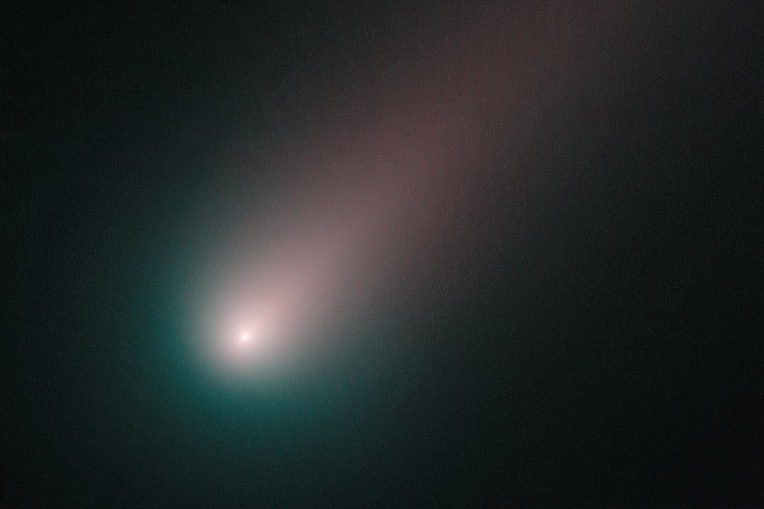The new film about a total apocalypse of the human race is being slammed by many film reviewers. But when I chat to people who have seen it they think it brilliant. And my Facebook wall is full of friends writing versions of OMG what a film! So what might these extremely different reactions tell us?
When I read the reviews of ‘Don’t Look Up’ they seem to misunderstand the film. Even the reviews from environmentalists who slag off the other reviews miss what is seen as important about the film by me and people who are alive to the very latest climate trends.. So here are my two cents on the film and – like all important art – the lessons from the reactions it has generated.
Judging by its output since WWII, the role of Hollywood has been to produce stories that celebrate human power (mostly male), including conquest, progress, success and heroic individualism. The stereotypical ‘Hollywood Ending’ is not only good but is thanks to one special person. Even tragedies and horror films would typically include some of those themes. Compare American output to French films and those aspects of Hollywood content are quite clear. Such aspects are not accidental. They align with an ideology of modernity and progress that has dominated global cultures for… well there are many views on how deep it goes.. But at least since WWII.
With that background, a film that was released for Christmas and ends with all the main characters expressing love for each other before they are obliterated along with the entire human race is not very usual! Don’t Look Up is the first time I have seen ‘doomer humour’ in a film with the biggest stars.
That can only happen if movie producers who are responsible for massive budgets sensed the public mood would welcome such a film. How would they know? Perhaps it was an artistic leap of faith. But as I wrote in the Deep Adaptation paper in 2018, public opinion surveys already tell us that the general public in most countries of the world already know things are messed up and going to get worse.
The corporate news media ignore that sentiment in society. Instead their pundits stick to the superficial positivity expected of people engaged in public communication. The film itself lampoons the way that the media expects its pundits to end with an upbeat message. It is because there is a civil religion in the public sphere about which we must not blaspheme. It is the religion of progress.
With that religion comes a range of related assumptions which shape us into insecure needy egos that constantly worry about getting more safety, comfort, certainty and status. It is something I have written about in my latest book and summarised in a blog. It is how the ideology is maintained by each and everyone of us through our inner worlds as we destroy the world (or at least anyone reading this blog).
So that could be why the reviews are so crap. Because how can one speak from a place that assumes human dominion, human invincibility, human centrality and human progress for ever more when faced with a film like this? How can one celebrate heroic individualism in response to a film that shows how stupid that is (in the first comet deflection attempt) and how deadly it can be (in the abortion of that attempt to allow an entrepreneur’s greedy dream of risking the human race to mine the asteroid)?
We often see this ideology of progress repress potential sensemaking about the latest climate science. “We might already have crossed the threshold for a cascade of inter-related tipping points,” that would begin taking the Earth to a far hotter state, top climate scientists wrote in the journal Nature in 2019. The researchers concluded that of the 15 potential tipping points they identified in 2008, seven now show signs of being active, meaning they may have already tipped into self-reinforcing and irreversible change. That is along with two new ones they have added to their list. i.e. 9 in total. The lead author of the study Professor Tim Lenton explained that “given its huge impact and irreversible nature… to err on the side of danger is not a responsible option.” An environmental journalist, Fred Pearce concluded that “the world may be almost out of time to prevent what they call an “existential threat to civilization.” Note the word “almost” in Fred’s summary. Yet the scientists did not conclude ‘almost’. They concluded that we might already be past the threshold of the tipping points – based on the effects of existing levels of atmospheric change. The inability to ‘know’ that for ‘certain’ is due to the limitations provided by conventions in scientific methods. The insertion of the concepts of “almost” or “nearly” or “might” by journalists, activists, consultants and politicians, even when the scientists haven’t said that remains widespread. It reflects their hierarchical attitude towards the general public who they assume must receive curated messages for their own good.
The film Don’t Look Up is the second mainstream bit of creative work from Netflix with a ‘doomer’ theme to cut through in 2021. The musical feature ‘Inside’ by Bo Burnham was also laced with ‘doomer humour’. It includes lyrics such as:
“You say the world is ending. Honey it already did.”
“We are going to go – everybody knows”
“The quiet comprehending of the ending of it all”
These momentary breaks with the ideology of progress from the chief manufacturer of the American dream – Hollywood – became popular with audiences because they connect with something known and unsaid, something privately feared yet publicly denied. Therefore although the people involved in the film ‘Don’t Look Up’ and the environmentalists now championing the film might be talking about “one last heave” to stop climate change, the power of such stories goes beyond any attempt to instrumentalise them.
Breaking through the taboo of superficial positivity to explore what the nature of our predicament might be is so important if we are to respond usefully – as individuals, organisations or whole societies. It is why the hundreds of scholars who are speaking out about the likelihood of societal collapse due to environmental change are doing difficult and important work. We are generally ignored or criticised by the mainstream media (and some fellow scientists) because we don’t fit the mainstream ideology – but that may be beginning to change.
If you want more grassroots ‘doomer humour’ then I recommend the doomer yoomer Facebook group. If you want to engage others from a positive pessimism where you seek to reduce harm no matter what is happening then I recommend the Deep Adaptation Forum. If you have time for a whole book on how insidious the ideology of progress is in shaping all our lives and what to do about it as we face societal breakdown, I recommend Hospicing Modernity.
Teaser photo credit: By ESA/Hubble, CC BY 4.0, https://commons.wikimedia.org/w/index.php?curid=29730965





